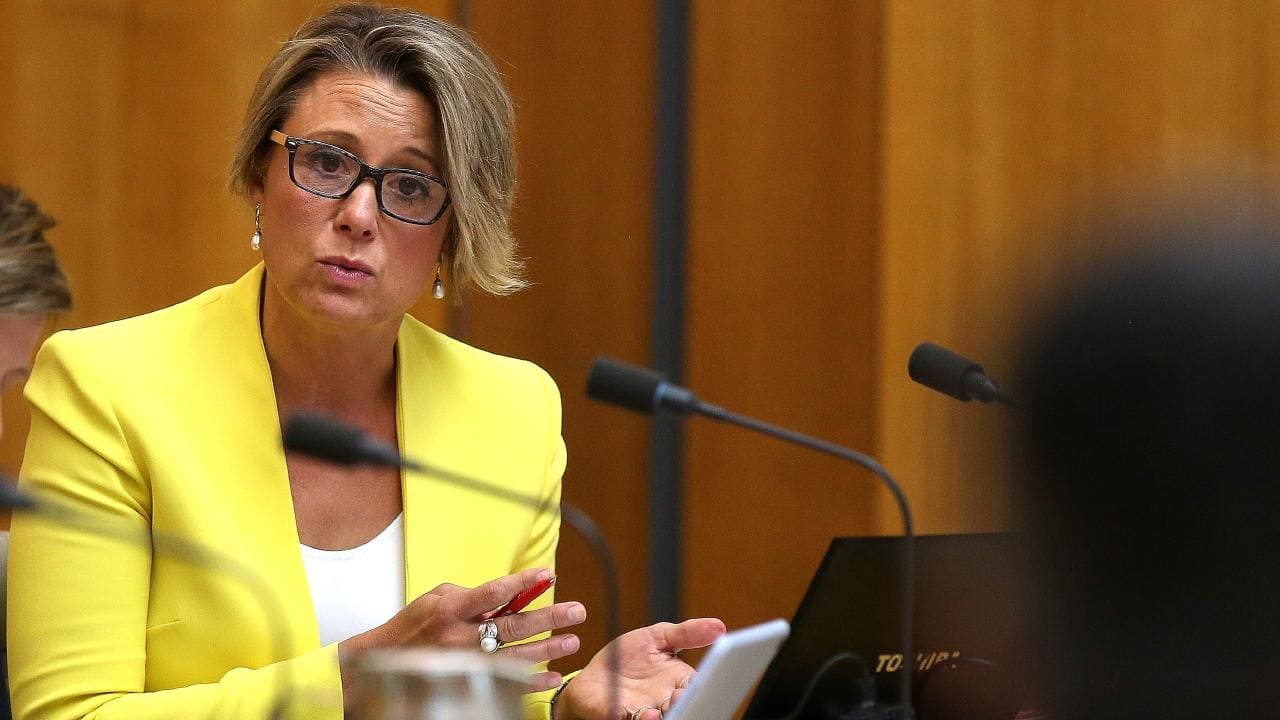
Thanks to the latest disclosure under parliamentary privilege, it is now arguable that one of the most important reports on corruption ever presented to the NSW parliament was so misleading it deserves to be pulped.
The 2013 report on Operation Jasper, by the state’s Independent Commission Against Corruption, ignored secret evidence by two former premiers — Kristina Keneally and Nathan Rees — that would have weakened, if not destroyed, ICAC’s narrative.
That narrative was relied upon by parliament as the basis for its decision to expropriate coal exploration licences without compensation, a move that has embroiled the NSW and federal governments in a completely avoidable debate with the government of the US.
Because one of those licences was held by a company with US shareholders, NuCoal Resources, the Americans have been talking to NSW and the federal government about whether the NuCoal expropriation breaches a free-trade treaty.
That treaty says that if US assets are going to be taken by Australia, it must be done by due process of law and must be followed by prompt and adequate compensation.
The Americans are already disappointed, and with just cause, about the way their citizens have been treated by NSW. The latest disclosures are unlikely to improve things.
Not only did the NSW government refuse to compensate the Americans and ban them from challenging the expropriation in court, this state, then led by former premier Barry O’Farrell, based its decision on a report by an agency which was not at arm’s length from the O’Farrell government and which ignored facts that did not fit its narrative.
That’s not the worst of it. Now that this agency’s misconduct has been exposed, don’t be surprised if it features in the pending appeal by former mineral resources minister Ian Macdonald.
Macdonald was sentenced to 10 years in prison for misconduct in public office after a trial in which lawyers from the office of the Director of Public Prosecutions told the defence team they had disclosed to them all the evidence the DPP had received from ICAC after the Jasper inquiry.
The transcript of Keneally’s secret evidence, which has been described in parliament as exculpatory of Macdonald, was not among the material the defence team received from the DPP.
Someone at ICAC seems to have decided to keep it from the prosecutors and, therefore, from the court.
That ICAC officer has some explaining to do, particularly if Macdonald’s conviction is set aside as unsafe and a new trial is ordered based on all the relevant evidence.
The man who has been exposing this agency’s abuses is the Liberal Party’s Peter Phelps. On March 8, he told parliament about the existence and content of Keneally’s secret evidence.
What she said to ICAC in private is consistent with what Rees told ICAC at his own secret hearing.
There is no suggestion Keneally, who is now a Labor senator, did anything wrong. She has repeatedly distanced herself from Macdonald.
She was obliged by the ICAC Act to attend this agency’s secret hearing and give evidence. The same act meant she faced criminal prosecution and a year in prison if she revealed what she had said.
The exculpatory nature of her evidence would therefore have remained suppressed forever but for Phelps.
On February 14, he had told parliament how ICAC had suppressed the evidence Rees gave in secret and had instead relied upon contradictory evidence this former premier gave six months later at a public hearing.
The Jasper report features Rees’s public evidence and makes no mention of his earlier contradictory statements.
After taking evidence in secret, ICAC decided against calling Keneally to give evidence in public. The Jasper report shows Macdonald’s counsel wanted Keneally called to give evidence after she declined to provide a statement to Macdonald.
The key point in her secret evidence is that, like Rees, she believed Macdonald had not been obliged to seek cabinet approval before issuing a coal exploration licence to Doyles Creek Mining, which NuCoal bought 14 months after the licence was issued.
The transcript that was read into Hansard by Phelps shows ICAC counsel assisting, Geoffrey Watson SC, asked Keneally whether she would recall if Macdonald had taken the matter to cabinet.
“Possibly,” she said. “Although it is a matter that would not usually come before cabinet.”
She said there would be “many circumstances” in which a minister would not take the allocation of an exploration licence to cabinet.
“A matter that might be directly within a minister’s remit; a matter that is not a change of government policy, for example,” she said.
Phelps told parliament: “What this does is two things. First, it confirms that Macdonald did not necessarily need to take the matter to cabinet.
“Secondly, it corroborates what was said by Nathan Rees in his private testimony … Thirdly, it is interesting to note that this was not called upon at the actual public hearings.
“Fourthly, it gives the lie to the assertion that was made in one of the final chapters of the Acacia report that they refused to release the private testimony to people involved in Jasper because they said ‘any exculpatory evidence would have been adduced by us’.
“We now know that that is a lie. It is a lie in the case of Rees and it is a lie in the case of Keneally. It is yet another example of the ICAC doing absolutely the wrong thing and it should be reinvestigated as a matter of importance and priority.’’
The suppression of exculpatory evidence is nothing new to ICAC. It happened in the failed prosecution of former emergency services commissioner Murray Kear. It happened again in the failed prosecution of businessman Craig Ransley. And now it has happened in the Macdonald case.
This could be a simple case of incompetence, or it could be a persistent attempt to pervert the course of justice. Either way, it demands an inquiry.
Chris Merritt
Legal Affairs Editor
(WTF) used with permission
